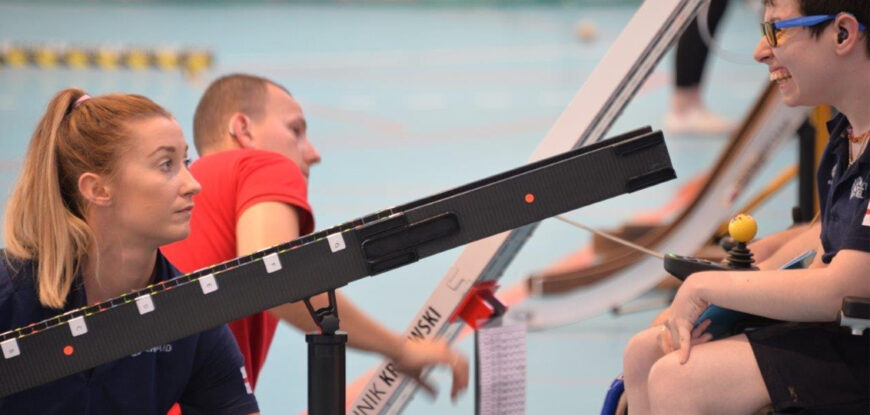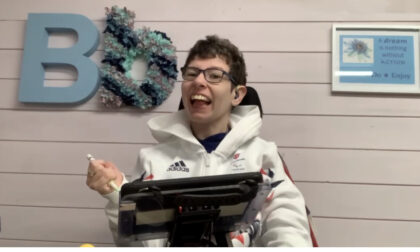 Boccia has, and continues to be, a passion.
Boccia has, and continues to be, a passion.
After playing since I was 10 in 2016 I suddenly had to stop throwing. This was caused by a combination of overheating when wearing skins for support (shorts, top and gauntlet) and finding after wearing them for years to play I could no longer grasp or lift a ball.
The first half of 2016 was horrendous, I had lost a part of my identity, I was no longer part of the England squad, no longer a thrower and felt I had no part within the boccia world. Despite going out and getting a second hand ramp I had to wait for several long months until I could be seen by the Head Classifier to confirm if I was a BC3. For someone who had trained several times a week, had a full life balancing university and sport I was at a loss. How did I fill my time, what did I do? I was no longer seeing friends at competitions and camps and life was challenging.
In May 2016 I was confirmed as a BC3, a ramp player. From there began what has felt a long and slow journey back to now be able to feel I am in sight of my dream again. To one day represent my nation at the Paralympics and gain a podium place. There are huge differences between being a thrower and a ramper.
Independence versus team work
As a BC1 I was allowed an on court assistant who could pass me the ball, however, as a thrower I hadn’t realised until I could no longer take part just what sense of independence I had felt when training and competing. How I sat in my chair, held, released and propelled (threw) the ball was completely in my control, if I did well, or poorly or violated it was my own responsibility. Suddenly as a BC3 I have a sports assistant who under my complete direction moves the ramp to where I want it.
This is a complete new ‘ball game”, I am having to learn to work in a slick, seamless team with my assistant. For those less familiar with the sport a BC3 Assistant is sometimes described as a robot; in the game they sitor stand with their back to the court and they are not allowed to communicate in any way either verbally or through body language with the athlete. Now, not only can I violate but so can my Assistant for any number of reasons; foot on the line, equipment on the line, accidently touching the ball after I release it, coughing or sneezing in a way that an official thinks is communication, turning around before the referee says it is ok at the finish of each end……I’ve learned the hard way that a good assistant can make (or break) your focus and performance.
Court craft – throwing versus ramping
As a BC1 I was in the classification for those throwers with the greatest physical challenge. I could get a ball anywhere on the court but my power was limited. Accuracy and pace are essential but the ability to smash a ball off court is less likely (or for me it was), so I relied on reading the game well and getting my balls closest to the jack. As a BC3 I am learning a completely different game, the magic of line, pace and POWER, controlling the head, gaining momentum and to look for ways to maximise score by knocking on my opponents balls.
Just as being a thrower and for years working on small gains to get to the top I now find myself in the same position as a ramp player; the difference is the small gains come not just from me and managing my body but also from how I use the right equipment and how well practised my assistant and I are together. Moving into the new classification has been challenging but exciting, I’ve built a great relationship with my sports assistant as we learn together, and I’m grateful to Kingsley Napley LLP for their sponsorship which has allowed me to invest in world class equipment.





Hello I hope you are well and find this comment I have looked all over the internet for rules about the BC3 boccia ramp I would like to know the rules on its design like the size shape and dimensions if at all possible most of the specifications really.
Regards
Stuart
Sorry Stuart missed your query. You can find the rules on the Bisfed World Boccia website. https://www.worldboccia.com/wp-content/uploads/2023/03/BISFed-International-Boccia-Rules-%E2%80%93-2021_2024-v.2.1.pdf section 4.1 Assistive Devices has lots of information.
Regards
Beth